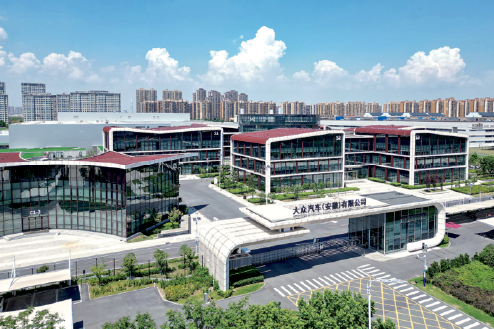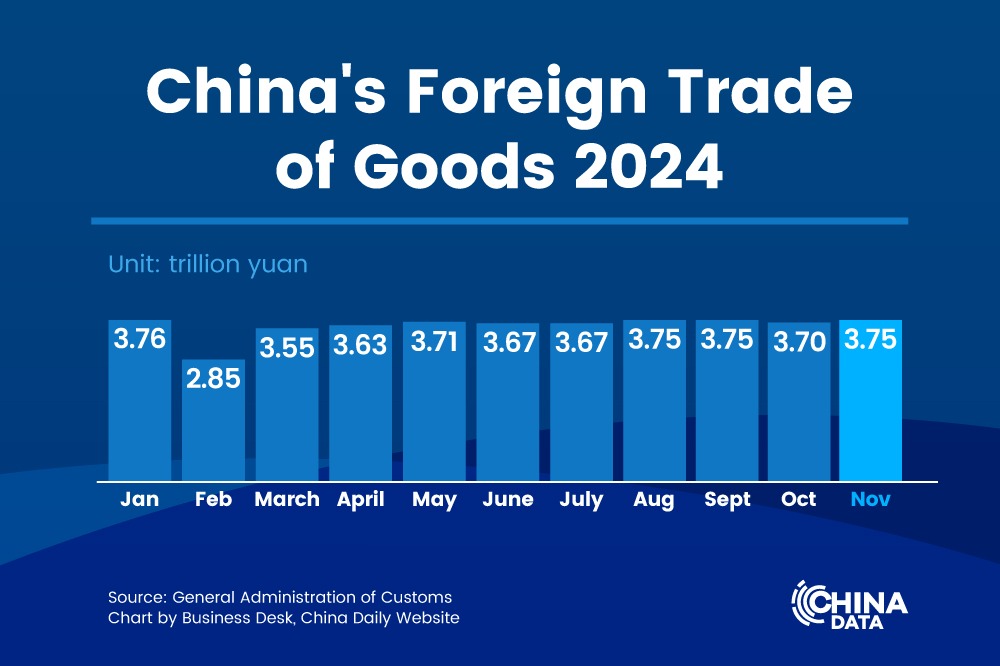Intensive stimulus urged to lift demand
Recent measures represent complete policy mix to tackle challenges


China's upcoming stimulus program may need to be one of greater intensity than the one initiated 10 years ago in order to revive the world's second-largest economy from a lingering downward spiral of insufficient aggregate demand, said an economist and national political adviser.
Zhang Bin, deputy director of the Chinese Academy of Social Sciences' Institute of World Economics and Politics, said China's latest policy package of countercyclical adjustments is aimed at boosting government and private spending to promote a robust recovery in overall income levels, without which there could be limited room for further lifting consumption.
Zhang added that the array of measures the country has introduced represent a comprehensive, complete policy mix to tackle the immediate challenge of lukewarm demand, and have strongly supported confidence and expectations.
"Back in 2014-2016, China managed to address a similar spiral of insufficient demand. The country made 10 cuts to policy interest rates totaling 185 basis points, implemented debt swaps exceeding 10 trillion yuan ($1.4 trillion) and launched monetized urban renewal initiatives which also stimulated growth in spending," Zhang said in an exclusive interview with China Daily.
For this round, various departments have indicated that all policy tools used in 2014-2016 are once again back on the table, Zhang said. "If the intensity is sufficient, I believe we can also navigate through the lack of demand this time."
"However, since we've been in a period of insufficient demand for a while, we need policies of a greater intensity, such as quicker and bigger interest rate cuts, a greater scale of monetized shabby home renovations and a larger expenditure in general public budget and government fund budget."
Zhang is also senior researcher at the China Finance 40 Forum, a leading think tank, and a member of the 14th National Committee of the Chinese People's Political Consultative Conference, the country's top political advisory body.
His call for amplifying macroeconomic policy support comes as markets closely watch for the details of China's stimulus plan to be approved by the country's top legislature next week.
During the World Bank's 110th Development Committee meeting last month, Vice-Minister of Finance Liao Min said China will intensify countercyclical adjustments of fiscal policy.
Zhang said that it "deserves anticipation" whether fiscal expansion in 2025 would further strengthen compared with this year, and that government spending should outpace GDP expansion to drive growth.
If the country's GDP growth target stays unchanged at about 5 percent for 2025 while the inflation target comes in at about 2 percent, it may necessitate a reasonable increase in government debt by about 11 trillion to 12 trillion yuan to ensure adequate government expenditures and policy-oriented financial bonds worth 3 trillion to 5 trillion yuan, Zhang said.
On the monetary policy front, Zhang said there is a large scope for interest rates to decline, as the rate cut should be significantly bigger than the slide in price levels to ease real financing costs, spur investment and consumption, and promote a healthy rally of the capital market.
He also urged for more spending to restructure cash-stressed real estate developers to recoup their position as a normal financing entity in the credit market.
Zhang also said there is room for relaxing the definition of new implicit local government debt, which is now strictly prohibited, to accommodate more project investments aimed at enhancing public welfare.
"These countercyclical policies to boost spending ultimately aim to increase incomes," he said. "Boosting consumption is not just about stimulating the consumption tendency and creating consumption scenarios, but more importantly, it is about increasing people's incomes."
According to Zhang, consumers' tendency to spend — their spending per 100 yuan of income — has risen to about 67 yuan as of the third quarter, almost back to pre-COVID levels, leaving very limited room for consumption growth if incomes stay unchanged.
He added that fully implementing the budgeted fiscal expenditures set for this year, instead of additional government debt, is at the core of fulfilling this year's economic growth objective.
"Boosting expenditures to align with the initial annual budget target for government fund spending would provide a safeguard for achieving this year's growth goal of about 5 percent."
Dong Yilang contributed to this story.
Contact the writers at [email protected]




































